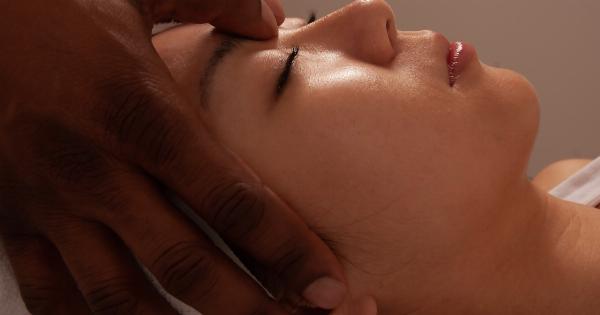Eczema, also known as atopic dermatitis, is a common skin condition that affects people of all ages. It is characterized by dry, itchy, and inflamed skin, often leading to discomfort and frustration.
While there is no cure for eczema, there are several effective tips that can help manage and reduce the itchiness associated with this condition. In this article, we will explore some of the best strategies for overcoming eczema itch and improving the overall quality of life for those affected.
1. Moisturize Regularly
One of the most crucial steps in managing eczema itch is to keep the skin well moisturized. Moisturizing not only helps to combat the dryness but also acts as a protective barrier.
Opt for moisturizers that are specifically formulated for sensitive skin and free from irritating fragrances or added chemicals. Apply the moisturizer at least twice a day or as needed, especially after washing or bathing.
2. Choose Gentle Cleansers
When washing your skin, it is essential to use gentle cleansers that do not strip away the natural oils or irritate the skin further.
Look for fragrance-free, hypoallergenic cleansers or mild soaps specifically designed for sensitive or eczema-prone skin. Avoid hot water and pat your skin dry with a soft towel instead of rubbing.
3. Avoid Triggers
Eczema flare-ups can be triggered by a variety of factors, including certain fabrics, soaps, detergents, or even food allergies. By identifying and avoiding these triggers, you can minimize the chances of eczema worsening.
Keep track of potential triggers and make necessary lifestyle changes, such as switching to hypoallergenic laundry detergents, wearing cotton clothing, and avoiding known food allergens.
4. Use Oatmeal Baths
Oatmeal is known for its soothing properties, making it an excellent natural remedy for eczema itch. Adding colloidal oatmeal to a lukewarm bath can help calm inflamed skin and relieve itching.
Soak in the oatmeal bath for about 15-20 minutes, gently pat yourself dry, and immediately apply a moisturizer to lock in the hydration.
5. Apply Cold Compresses
When eczema itch becomes intense, applying cold compresses can bring relief by numbing the affected area. Wrap a few ice cubes in a clean cloth or use a cold pack and gently press it against the itchy skin for a few minutes.
This can help alleviate the itch and reduce inflammation temporarily.
6. Wear Breathable Fabrics
The type of clothing you wear can have a significant impact on eczema itch. Opt for breathable fabrics such as cotton or bamboo, which allow better airflow and minimize irritation compared to synthetic materials.
Loose-fitting clothes can also prevent friction and excessive sweating, reducing the risk of eczema flare-ups.
7. Keep Nails Short
Scratching the itchy skin is a common instinct, but it can damage the skin barrier and worsen eczema symptoms. Keeping your nails short helps prevent deep scratches and reduces the risk of secondary infections.
If you find it challenging to resist scratching, wearing cotton gloves at night or using distractions like fidget toys can be beneficial.
8. Use Topical Steroids or Ointments
In cases of severe eczema flare-ups, topical steroids or ointments prescribed by a dermatologist can provide relief. These medications help reduce inflammation, soothe the itch, and promote healing.
However, it is important to use them as directed, in the appropriate dosage, and for the prescribed duration to avoid potential side effects.
9. Practice Stress Management
Stress has been known to exacerbate eczema symptoms, including itchiness.
Engaging in stress management techniques such as mindfulness meditation, deep breathing exercises, yoga, or engaging in hobbies can help reduce stress levels and subsequently alleviate eczema itch.
10. Seek Professional Help
If self-care measures and over-the-counter remedies do not effectively manage eczema itch, it is crucial to seek the advice of a healthcare professional or dermatologist.
They can evaluate the severity of your condition, provide additional treatment options, and help you develop a personalized plan to overcome eczema itch.






























